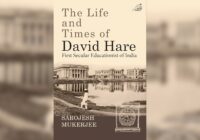Something to consider when reading/listening: Can you truly be rich if your life lacks meaning?
When I enter the prime minister’s oak-paneled office, she launches into a monologue about the ingratitude of the nation’s key workers, before staring at me and narrowing her eyes. “You’re doing that thing,” she says, “with your face.”
“My face, prime minister?” I straighten my tie and look up at the bookshelves. “Who is it now?” she says. “The fire brigade? The ambulance drivers? Which poor, neglected branch of the proletariat is refusing to do their job until they’ve fleeced us for every penny we haven’t got?.” “Ah well,” I say, “this time it’s not about money.” “No,” she says, “it never is. It’s conditions or hours or safety. Never about money, god forbid. Until we get round the table and we ask them what it’ll take to call the strike off and they say, ‘Well, perhaps we can ease our demands regarding the conditions or the hours or the safety and simply make do with the money after all.’” She smiles at her own hilarity. “So go on, out with it. Who’s threatening to go on strike now?” “Office workers, prime minister.” She looks puzzled. “Meaning?” “Uh… well…people who work in an…” “Can you be more specific?” “Well… accountants, administrators, advertisers, call center operators, civil servants, copywriters…” “Everyone? You’re listing everyone?” “It is about 64% of the workforce, yes. The biggest strike in British history.” “But we’ve no money. Gave it all to the teachers and doctors, and we’d no money before we did that.” “Ah well, as I was saying…” “Freddy, Freddy, Freddy, do keep up.” “But this time…” “This time, this time, this time. ‘This time’ is what they say every time. But go on Freddy, humour me. If it’s not about money, what is it?” I take a moment to steady myself. “Meaning, prime minister.” “It’s perfectly plain what I mean. I mean what are they claiming it’s about? What do they want?” “Meaning.” “Are you deaf, boy? What are they asking for by threatening this strike.” “Meaning.” “If you ask me to explain myself one more time—” “They’re saying their jobs lack meaning. And they don’t think it’s fair.” She stares at me without expression. “The office workers of this country,” I say. “The accountants, the admin assistants, all of them; they’ve looked at the doctors, the nurses, the teachers, the people who save lives and shape lives and everything else, and they’ve looked at their own jobs and they’ve spotted the rampant inequality. And they’ve come to the conclusion that enough is enough.” “Inequality of… of….?” “Of meaning, yes. A nurse goes to work and eases suffering. No, she might not earn as much as she’d like but at least she feels as though she’s made a difference. Compare this to, say, a high-earning sales manager. It’s not much comfort to check his bank balance every month when he’s unable to say he’s done anything to help better the lives of those around him.” I expect her to rebuke me with a lecture on the value inherent in paying tax. But she doesn’t. “It’s true,” she says. “It’s true. It’s true. The inequality is unspeakable. Why has no one mentioned this before? Don’t answer that, Freddy. That’s not the question. This issue has the potential to transform our society. Get it wrong and I could be booted from office. Get it right and it could be my entire legacy. The question, Freddy, the question, is what are we going to do about it?”I smile. I relax. Based on what I’m about to say, I’m confident she’ll realize I came prepared. “Thankfully, prime minister, I came prepared. We’ve got some great ideas and we’ve managed to test one or two of them on a small scale.”
She nods. “Well come on. Out with it, Freddy.” Having worked with her for a number of years, I know it’s always better to start small and build up. “We thought we could show them where their taxes are being spent.” “Don’t we do that already?” “But specific examples. Create a direct link between a taxpayer and a government project. Not just healthcare or pensions or whatever but a specific hospital wing, say, that their specific taxes have gone towards.” “Hmm,” she says, unimpressed. “And uh… we have a scheme for workers in uhm slightly unfulfilling roles which would allow them to spend two hours per week on a creative, independent project of their choice.” “Oh Lord,” she says, rolling her eyes. “Take precious time they could be using to help their employer and spend it on what? Setting up a short story podcast?” “Well, I like to think they’d spend the time slightly more wisely than that.” “Where’s the meat, Freddy? Where’s the gristle?” “Ok, ok, so…you know how teachers get presents from their children at Christmas?” “Quite extravagant presents too if my daughter’s school is representative.” I don’t point out that it most certainly is not. “Now of course we won’t simply take the presents themselves, but the meaning behind them. We’ll get the kids to record messages of thanks to their favorite teacher and half of these will be sent to Ahmed who’s an account manager at HSBC.” “Good. Sensible. What else?” “There’s a pediatrician I know who has a wall of photos in his office. The children whose lives he’s saved. We would take half of those photos and give them to Barry who works on the cancellations team at EE.” “The chap who won’t let you leave?” “Precisely.” “But will Barry feel as though he’s saved the children himself?” “He will when the parents write to him personally.” “Very good.” “In fact, and this is one we tested out, there was this young couple who named their daughter Chloe after the doctor who delivered her. It was the sixth time this had happened in the doctor’s career.” “Six little Chloes?” said the prime minister. “An awful lot of meaning for just one person, I must say.” “Precisely. So what we did, is we decided that, rather than being named after the doctor who delivered her, the child should in fact be named after the council officer who turned down their planning application a few months prior. They wanted to convert their garage into a nursery.” “And how did the couple feel about that?” “They were furious.” “And the council officer?” “Gertrude was over the moon.” “So it works?” “It works.” “I must say, Freddy, I do like the sound of this. Nobody enjoys giving up money but they still do it. So why shouldn’t these meaning-hoggers share the wealth too?” “And as technology progresses, prime minister, we’ll be able to take people’s memories and use them to create virtual experiences. So Barry and Gertrude can actually see what it’s like to save a life or help bring a new one into the world.” “Terrific, terrific.” She bangs her fist on the table. “So let’s be clear… who’s at the top of the tree when it comes to meaning?” “A very good question.” “Don’t patronize me, Freddy.” “It’s impossible to be sure of course but… according to our fairly uh rigorous research…” “Yes, yes, yes.” “And I’ll admit I found this slightly surprising.” “Out with it Freddy, out with it.” “Plumbers.” “What?” She pulls a face and I can’t tell if she’s shocked by the answer or trying to remember what a plumber is. “They help people in their hour of need,” I say, “and they tend to own their own business. Those two are huge factors in…in… the generation of meaning.” I think now of a slightly strange conversation I had with a plumber a few months ago. “Evidence also suggests they’re very philosophically inclined. The fact that so much of their work is done with their hands, it leaves their minds free for deep inquiry.” “Gotcha,” she says. “Plumbers on top. Who’s next?” “Midwives are straight in at second place.” “We’ll be taxing their meaning heavily?” “It would be unjust not to. Then there’s doctors, nurses, vets, dentists, teachers, members of the armed forces, speech therapists, electricians, jugglers, bakers, florists, gardeners…” “That’s our top tax bracket is it, as far as meaning goes?” I nod. “There are certain professions where you can either be quite near the top or quite near the bottom; journalist, lawyer, actor, politician, taxi driver, zoo keeper, software developer, police officer, charity fundraiser, civil servant, busker, dog walker, psychic, clown… We plan to introduce Meaning Centers across the country, prime minister, to make person-by-person assessments.” “And how much meaning will the staff of the Meaning Center enjoy?” “I suspect, oddly little.” “Mmm.” “At the bottom of the pile, we’ve got estate agents, bankers, bailiffs, abattoir operatives, oil salesmen, drug dealers, contract killers, admin assistants and anyone employed by Tottenham Hotspur.” She takes a moment, head bowed, to consider how tough life must be for these poor people. “What about train drivers? They’re always striking over money. How do they feel about meaning?” “Oh, they’re reasonably high up in terms of meaning. But they still plan to strike.” She rolls her eyes. “And how much of, say, the average midwife’s meaning would we be looking to take?” “Well, we’d allow everyone to derive a certain amount of meaning tax-free.” “Makes sense.” “There are some professions who would pay a very low amount of meaning tax and others who would receive a negligible sum of meaning benefit. But for the most part, we want to redistribute the meaning from the top to the bottom. And the more meaning you have, the higher percentage we’ll take. For someone like a midwife or a plumber or a juggler, we’d be taking near enough fifty percent of all the meaning they derive from their line of work.” “And passing it on to estate agents, bankers and bailiffs and anyone who works for… who was it again?” “Tottenham, prime minister. The definition of meaningless.” She smiles. “I think it’s a wonderful idea…Truly wonderful. For too long the rich and unhappy have been penalized while the merry poor have rubbed their noses in it. Why should we seek to immiserate the workaholic commodities trader whose life is bereft of joy, while letting the proud and passionate midwife off scot-free? Where does the inequality truly lie between these two?” “Exactly, prime minister. Exactly.” “Let’s do it, Freddy. Let’s tie all of that up in a neat bow and let’s get it through parliament.”She stares into the distance, picturing the personal glory this policy may bring. “This is it, Freddy. This is my moment. This is my legacy. This is what they’ll remember me for in five hundred years. The woman who finally put the nation’s finger on the great, unspoken unfairness in our society. The ripple effects will stretch across the world. Surfing instructors in Australia. Buddhist monks in Cambodia. Origamists in Japan. Your days of unbridled meaning are coming to an end. I am going to change the country. And then I’ll change the world.”
I force a smile. “What is it?” she says. “Hmm?” “You’re doing that thing with your face.”[Doe Wilmann first released this piece on his short story podcast, Meaningless Problems.]
The views expressed in this article are the author’s own and do not necessarily reflect Fair Observer’s editorial policy.
Support Fair Observer
We rely on your support for our independence, diversity and quality.
For more than 10 years, Fair Observer has been free, fair and independent. No billionaire owns us, no advertisers control us. We are a reader-supported nonprofit. Unlike many other publications, we keep our content free for readers regardless of where they live or whether they can afford to pay. We have no paywalls and no ads.
In the post-truth era of fake news, echo chambers and filter bubbles, we publish a plurality of perspectives from around the world. Anyone can publish with us, but everyone goes through a rigorous editorial process. So, you get fact-checked, well-reasoned content instead of noise.
We publish 2,500+ voices from 90+ countries. We also conduct education and training programs
on subjects ranging from digital media and journalism to writing and critical thinking. This
doesn’t come cheap. Servers, editors, trainers and web developers cost
money.
Please consider supporting us on a regular basis as a recurring donor or a
sustaining member.
Will you support FO’s journalism?
We rely on your support for our independence, diversity and quality.







Comment